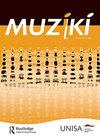The Relationship between Perfectionism, Cognitive Rumination, Mindfulness and Mental Health in Music Students at a South African University
IF 0.8
0 MUSIC
引用次数: 1
Abstract
Abstract The increasing performance and academic demands within the tertiary setting, in conjunction with perfectionistic behaviour and ruminative thinking, may contribute towards mental health difficulties among music students. The current study explored the relationship between perfectionism, rumination, mindfulness and mental health in music students. Using a cross-sectional survey design, 72 university music students participated in the study. According to their self-report mental health status, the participants were clustered into self-report mental health (n = 26) and no mental health (n = 46) groups. The results revealed that anxiety and depression were the most prominent mental health issues. Essential correlations between perfectionistic concerns and brooding rumination emerged in both groups; however, the participants from the no mental health group displayed significant inverse associations between perfectionism and mindfulness (Pursuit of Perfection and Non-judging of Inner Experiences; Concern over Mistakes and Non-judging of Inner Experiences) which were not evident among the participants from the self-report mental health group. Moreover, significantly higher scores of perfectionistic concerns, brooding and reflective rumination were found among participants from the self-report mental health group compared to those from the no mental health group. The results provide valuable insights into the mental health status of music students.南非某大学音乐系学生完美主义、认知反刍、正念与心理健康的关系
摘要高等教育环境中不断增长的表现和学术需求,加上完美主义行为和沉思思维,可能会导致音乐学生的心理健康问题。本研究探讨了音乐系学生完美主义、沉思、正念与心理健康之间的关系。采用横断面调查设计,72名大学音乐系学生参与了这项研究。根据自我报告的心理健康状况,参与者被分为自我报告的精神健康组(n=26)和无心理健康组(n=46)。结果显示,焦虑和抑郁是最突出的心理健康问题。完美主义关注和沉思沉思之间的本质相关性出现在两组中;然而,来自非心理健康组的参与者在完美主义和正念之间表现出显著的负相关(追求完美和不判断内心体验;对错误的关注和不判断内在体验),这在自我报告的心理健康组参与者中并不明显。此外,与非心理健康组相比,自我报告心理健康组的参与者完美主义担忧、沉思和反思的得分明显更高。研究结果为了解音乐专业学生的心理健康状况提供了有价值的见解。
本文章由计算机程序翻译,如有差异,请以英文原文为准。
求助全文
约1分钟内获得全文
求助全文

 求助内容:
求助内容: 应助结果提醒方式:
应助结果提醒方式:


